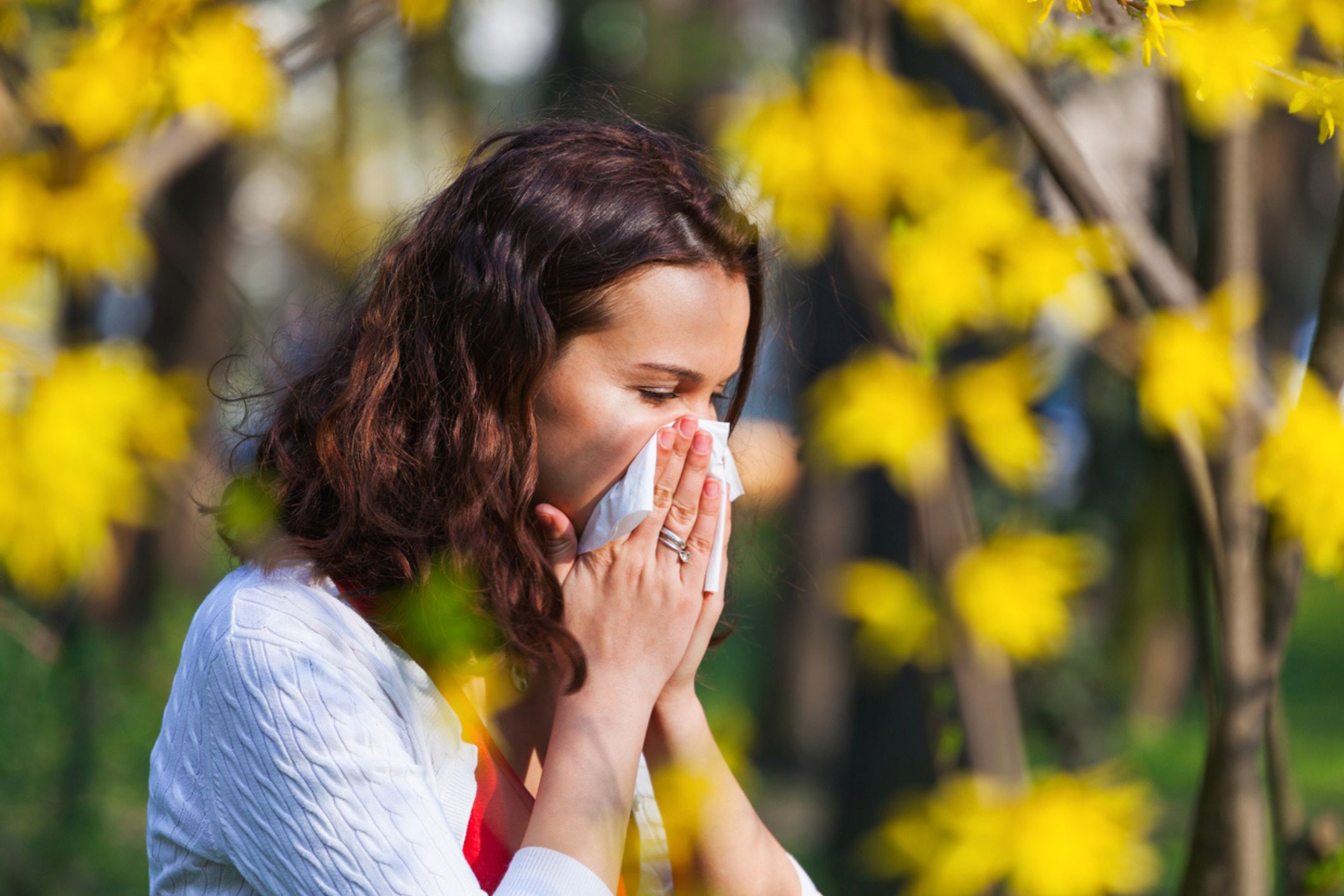
As the seasons change in New Jersey, so does the air around us, bringing with it the unwelcome guest of allergies. From the fresh blooms of spring to the falling leaves of autumn, it’s not just about the changing scenery — it’s about the sneezes, itchy eyes, and runny noses for many. Tackling these seasonal allergies head-on means being smart about what triggers symptoms and how to dodge them. Whether you’re a long-time sufferer or new to the area, we can help you understand allergy season in New Jersey.
Spring Allergies: Trees and Flowers Awaken
The onset of spring, typically from early March through May, marks the beginning of allergy season in New Jersey. Cedar, beech, oak, and maple trees start releasing pollen as early as early March. This period is crucial for those sensitive to tree pollen as the concentrations in the air begin to build.
By mid-spring, flowering plants and shrubs add to the pollen mix. While beautiful, the flowers of cherry, dogwood, and juniper can be problematic for allergy sufferers. It’s the price of the season’s vibrant colors and sweet scents.
Strategies for Spring Allergies
Minimizing exposure is key during these months. Keep an eye on local pollen forecasts, stay indoors on high-pollen days, and consider wearing a mask during outdoor activities like gardening. Regularly washing bedding and clothes can also reduce pollen accumulation indoors.
Summer Allergies: Grasses Take the Stage
Summer brings warmth and longer days, but also grass pollen. From May through July, grasses such as tall fescue, fine fescue, and Kentucky bluegrass are in full swing, affecting those with allergies.
Urban vs. Rural Challenges
The intensity of grass pollen can vary significantly depending on your location. Urban areas may have less green space but can still harbor enough grass to cause symptoms. Rural areas, with their vast fields, can be particularly challenging during this season.
Strategies for Summer Allergies
Maintaining a clean indoor environment becomes crucial in summer. Using air conditioners with HEPA filters can help filter out pollen, and keeping windows closed will prevent pollen from drifting indoors. Showering after being outside can also help by removing pollen from your skin and hair.
Fall Allergies: The Reign of Weeds
As summer transitions into fall, ragweed becomes the primary source of allergies. A single plant can produce up to a billion grains of pollen per season, affecting people well into November or the first frost.
Besides ragweed, other weeds like pigweed, lamb’s quarters, and mugwort spread their pollen in the fall, compounding the issue for allergy sufferers.
Strategies for Fall Allergies
Staying ahead of fall allergies means starting medications before symptoms kick in. Keeping windows closed to prevent pollen from entering your home and using air purifiers can also make a big difference in managing symptoms during this season.
Winter Allergies: Indoor Allergens
Winter might seem like a break from pollen, but it introduces indoor allergens like dust mites, pet dander, and molds. These can be just as troublesome, especially as people spend more time indoors.
Humidity and Heating
Indoor heating can circulate dust and other allergens throughout your home. Meanwhile, high indoor humidity can encourage mold growth, adding to the problem.
Clearing the Air for Winter
Managing indoor air quality is crucial during the colder months. Regular vacuuming with HEPA filters, reducing humidity levels, and cleaning heating vents can help minimize exposure to indoor allergens.
Take Control of Your Allergy Symptoms Today
Ready to Breathe Easier?
At Impact Medical, we understand the challenges that come with allergy season in New Jersey and New York. Our providers are here to support you every step of the way, from identifying your triggers to managing your symptoms. Don’t let allergies control your life. Click here to schedule a consultation and take the first step toward a happier, healthier you.